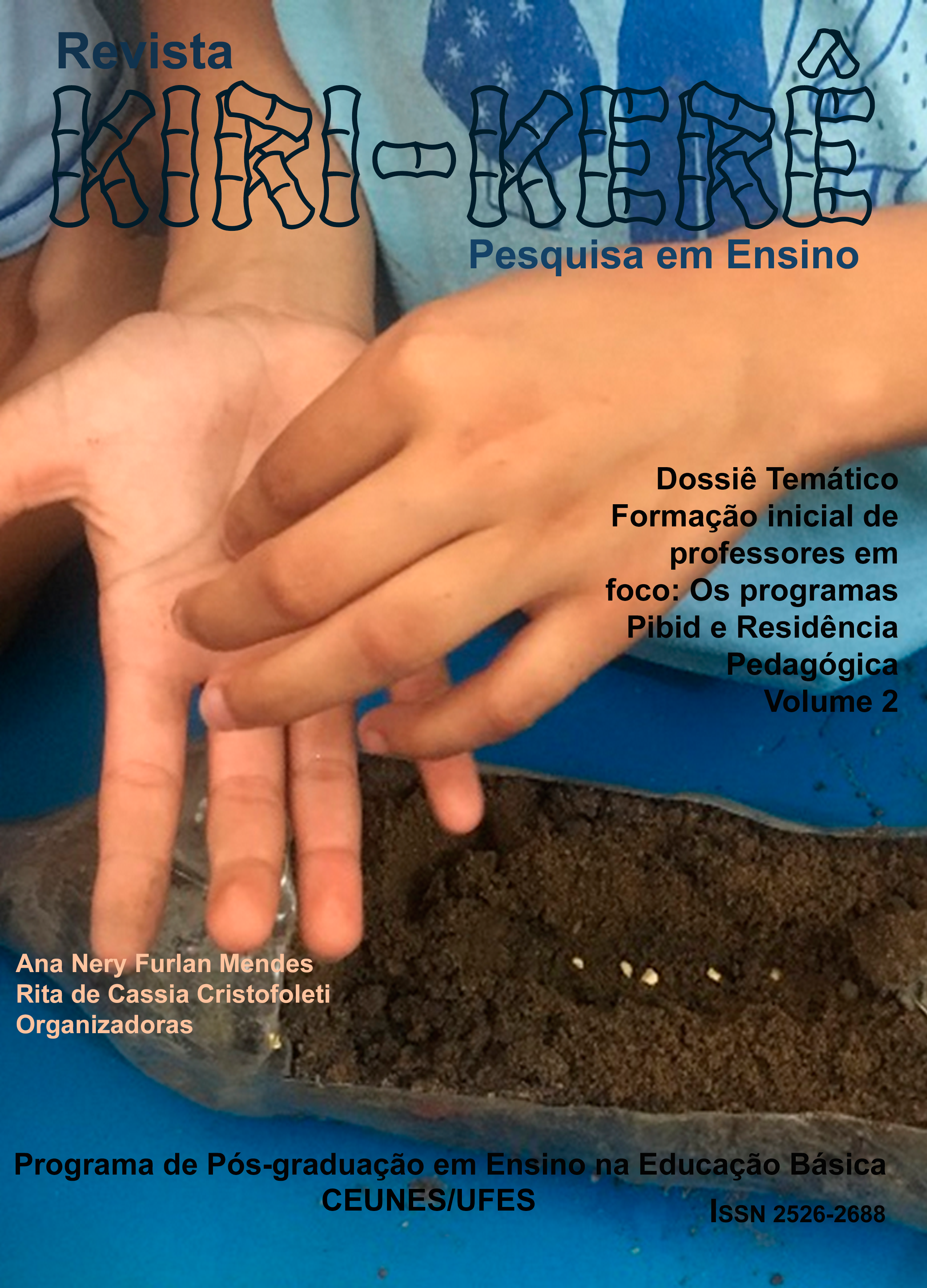Reflections of PIBID actions in the training process of teachers in Rural Education
DOI:
https://doi.org/10.47456/krkr.v2i5.32571Abstract
In this work we present reflections from the reports and observations accumulated from the experiences of the students of the Course of Education of the Field - Degree with emphasis in Sciences of the Nature, of the Federal University of Pampa, in the Institutional Program of Scholarships of Initiation to Teaching (PIBID) in the period from 2018 to 2020. In this process, 24 fellows participated in three schools in the countryside, two in Dom Pedrito and one in Sant'Ana do Livramento, serving an average of 300 Basic Education students. The work developed came from the demands of the schools, and these were identified from the insertion of students in daily life and from the dialogue with teachers from different areas of knowledge and communities. This culminated in different educational proposals and actions, among which we highlight the following: i) school garden and unconventional food plants; ii) agroforestry; iii) composter and earthworm iv) revitalization of the orchard area. As a result, we realize that: a) it is possible to teach sciences taking as a starting point the social practice of the school community, since all human life is surrounded by the Sciences of Nature (Biology, Physics and Chemistry); b) that it is possible to overcome the precarious and thoughtless daily life with support in science; c) learning through “playful teaching”, educational games and experimental activities. Faced with these elements, PIBID has been instrumental in qualifying the training process of students, trainers and supervisors.
Downloads
Published
Issue
Section
License
The authors accept, when sending their works, the assignment of their copyrights.


